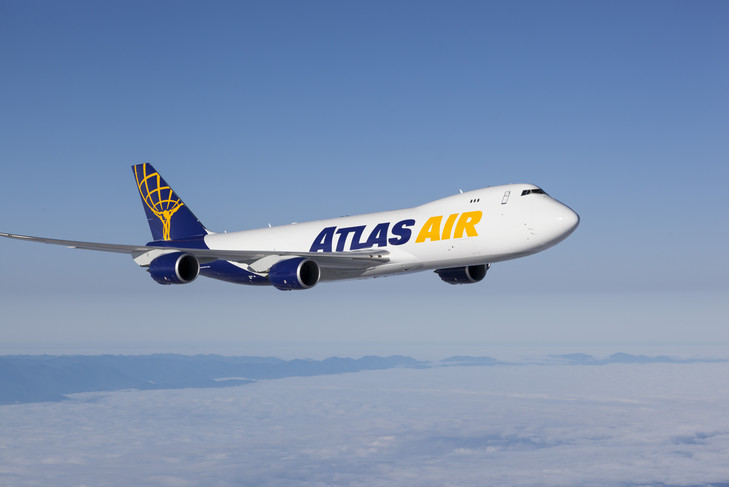Atlas Air revives parked freighters as Covid-19 boosts demand
07 / 05 / 2020

Atlas Air Worldwide has responded to increased airfreight demand over the last few months — a knock-on effect of the coronavirus pandemic — by bringing three of its Boeing 747 converted freighters, which had been parked, back into service.
The lessor is also operating one of its Boeing 777 freighters that was previously in its dry-leasing business.
In its first-quarter results, Atlas Air Worldwide saw a 5% year-on-year decrease in revenues – from $679.7m in the first quarter of 2019 to $643.5m in the same period of this year. Net income increased to $23.4m.
Adjusted ebitda for the first quarter of this year was $121.2m – 0.6% higher than the $120.4m achieved in the same period of 2019.
Volumes in the first quarter of 2020 amounted to 73,247 block hours compared with 77,061 in the first quarter of 2019 — a 5% year-on-year increase.
Atlas Air Worldwide said its first quarter results reflect global airfreight demand in the wake of the coronavirus pandemic.
John W. Dietrich, president and chief executive at Atlas Air Worldwide, said: “After a slow start, and despite the continual and varying operational challenges and uncertainties related to Covid-19, we ended the quarter with results that exceeded our expectations.”
Dietrich added: “Our results reflected increased charter cargo demand and higher airfreight yields in March. They also reflect the vital role that Atlas plays in supporting the global economy and our customers by keeping goods moving.”
Atlas Air Worldwide’s charter division saw revenues increase by 7% year on year in the first quarter of the year, from $305.1m in 2019 to $327.6m in 2020.
The charter division’s direct contribution increased by 74% year on year, from $29.1m in the first quarter of 2019 to $50.8m in 2020.
“[The charter division’s increase in] contribution was primarily driven by an increase in commercial cargo yields (excluding fuel), reflecting a reduction of available capacity in the market and the disruption of global supply chains due to the Covid-19 pandemic,” said the carrier.
Revenues in Atlas Air Worldwide’s ACMI division decreased by 9% year on year in the first quarter, from $306.5m in 2019 to $ 278.7m in 2020.
Atlas Air Worldwide said that its ACMI division’s decrease in revenue “reflected a decrease in flying, primarily driven by the re-deployment of Boeing 747-400 aircraft to the charter division as well as customer flight cancellations caused by the Covid-19 pandemic”.
The ACMI division’s direct contribution in the first quarter increased by 31% — from £40m in 2019 to $52.3m in 2020.
Atlas Air Worldwide’s dry leasing division saw revenues decrease by 40% in the first quarter — from $70m in 2019 to $42m in 2020.
The dry leasing division also reported a 70% year-on-year decrease in direct contributions during the first quarter — from $36m in 2019 to $10.7m in 2020.
Looking forward, Atlas Air Worldwide is optimistic for the second quarter of this year and it expects that the majority of its earnings to occur in the second half of this year.
The company also said is “mindful of the evolving and uncertain environment and the importance of prudent financial management”.
“We are taking actions to reduce costs and enhance liquidity, including significantly reducing discretionary spending, limiting our hiring for certain positions and selling non-essential assets,” said Dietrich.
Commenting on the company’s expected performance for the next quarter, Dietrich said: “We expect to fly approximately 80,000 block hours in the second quarter of 2020, with revenue of approximately $770m and adjusted ebitda of about $165m.
“Excluding the benefit from a refund of excess aircraft rent paid in previous years of approximately $25m, after tax, we anticipate adjusted net income to grow approximately 40% to 50% compared with adjusted net income of $30m in the first quarter of 2020.”
Atlas Air Worldwide also revealed in its first-quarter results that it has reached an agreement with its pilot unions at Atlas Air and Southern Air for an interim pay increase of 10%, effective May 1.
Dietrich, explained: “This recognizes the outstanding efforts that our pilots provide every day, and especially in this challenging operating environment.”














